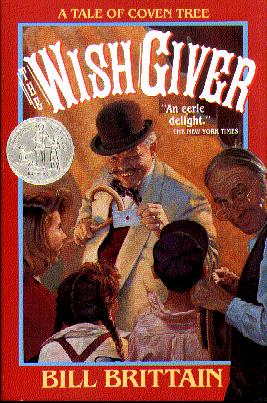 |
| Courtesy Western Libraries |
A while back a friend asked if I had ever written any tips on writing short stories and I had to answer yes and no. Or rather, no and yes. I had never written any formal advice on that subject but in ten years of blogging I had covered a lot of related topics.
So here is my informal textbook, selected from several different blogs. It leans heavily toward mystery fiction, naturally, and some of it is about novels rather than short stories. But hey, you can't beat the price. New pieces from 2024 appear in red.
I hope some of you find it useful. Enjoy.
CHAPTER 1: THE WRITER'S MIND
How It Works. Creativity requires two parts of your brain.
How to Make It Work. Getting the parts of your brain to cooperate.
From The Shiny New Desk. Applying the thoughts above to some advice from Ken Rand.
The Four Seasons. An author's mental year.
CHAPTER 2: THE WRITING HABIT
Dominating the Submission. Five tips for people about to submit stories for the first time.
A Page A Day. Finding time to write.
Working Vacation. Time off gives you a chance to think about your work habits.
Have Suitcase, Will Plot. More about writing on the road.
CHAPTER 3: INSPIRATION
How to Make It Work. Getting the parts of your brain to cooperate.
From The Shiny New Desk. Applying the thoughts above to some advice from Ken Rand.
The Four Seasons. An author's mental year.
CHAPTER 2: THE WRITING HABIT
Dominating the Submission. Five tips for people about to submit stories for the first time.
A Page A Day. Finding time to write.
Working Vacation. Time off gives you a chance to think about your work habits.
Have Suitcase, Will Plot. More about writing on the road.
CHAPTER 3: INSPIRATION
Time to Accessorize. Five sources for story ideas.
The Devil You Don't Know. An exercise to develop story ideas.
Missed Connections. Getting (or not) story ideas.
Seventeen Minutes. Do something with that idea!
Light Bulbs, A Dime A Dozen. A great idea is not enough.
Gutter Dwellers and Chair Thieves. When is plagiarism legitimate?
Missed Connections. Getting (or not) story ideas.
Seventeen Minutes. Do something with that idea!
Gutter Dwellers and Chair Thieves. When is plagiarism legitimate?
The Hole Truth. Creating conflict.
Telling Fiction From Fact. Stories based on true events.
Two Plots, No Waiting. A complicated entwined plot.
The Rising Island Method. Writing a long story out of order.
Unlikely Story. The power of foreshadowing.
Unreal Estate. Should you use a real place as a setting or fictionalize it?
CHAPTER 5: PLOT PROBLEMS
New Choice! Avoiding plot cliches.
Get Off The Premises. An unbelievable premise can kill your story.
Time Warp. What year do you think you are writing about?
 Refrigerator Questions. Which plot problems don't need fixing?
Refrigerator Questions. Which plot problems don't need fixing?
Enter the Villain. One way to ruin a mystery novel.
It's so Crazy it Might Just... be Crazy. How to deal with an unlikely plot element.
How to Kill Your Story. Some easy problems to solve.
New Choice! Avoiding plot cliches.
Get Off The Premises. An unbelievable premise can kill your story.
Time Warp. What year do you think you are writing about?
 Refrigerator Questions. Which plot problems don't need fixing?
Refrigerator Questions. Which plot problems don't need fixing?Enter the Villain. One way to ruin a mystery novel.
It's so Crazy it Might Just... be Crazy. How to deal with an unlikely plot element.
How to Kill Your Story. Some easy problems to solve.
Farewell My Coastline. How to talk about Something Important without boring the reader.
A Fine Trip to the Dump. Dealing with the expository dump.
Waving at Plotholes. Another method for dealing with improbabilities.
CHAPTER 6: STYLE
Common Senses. An easy way to add that telling detail.
Suddenly I Got A Buzz. Words to avoid.
There's Only One Rule. How experimental or mainstream should you be?
See If I Care. How do you make the reader care what happens?
Good Cop Story, Bad Cop Story. The old rule: show, don't tell.
Would You Rather Be Framed or Flashed? Structural devices.
Salute To The Unknown Narrator. A method of creating suspense.
Filling In The Landscape. Use a real place, make one up, or compromise?
The Pain of Others. Great stories tend to have at least one of these three characteristics. (I have since added a fourth.)
CHAPTER 7: CHARACTERS
Suddenly I Got A Buzz. Words to avoid.
There's Only One Rule. How experimental or mainstream should you be?
See If I Care. How do you make the reader care what happens?
Good Cop Story, Bad Cop Story. The old rule: show, don't tell.
Would You Rather Be Framed or Flashed? Structural devices.
Salute To The Unknown Narrator. A method of creating suspense.
Filling In The Landscape. Use a real place, make one up, or compromise?
The Pain of Others. Great stories tend to have at least one of these three characteristics. (I have since added a fourth.)
CHAPTER 7: CHARACTERS
The Motive Motif. About characters and their motivation.
Rosencrantz and Guildenstern Want Something. Every character needs a motive.
The First Two Pages: The Chair Thief. Using dialog to establish personality.
Naming the Detectives. Selecting names for your characters.
Backtalk. Taking advice from your characters.
Necessary Evils. Turn a plot necessity into a great character.
Who Do You Trust? Unreliable narrators.
Who is Guarding Your Threshold? Reaching back to the classics for a character type.
The Man Who Almost Wasn't There. Matching a protagonist to your plot.
CHAPTER 8: TITLES
Insert Clever Title Here. How to choose one.
Title Fight. Examples of great titles and what makes them so.
Beat Cop. A long title should scan.
CHAPTER 9: BEGINNINGS, ENDINGS
Opening Bottles and Books. The purpose of opening lines.
The First Two Pages: Greenfellas. Introducing many characters early. (PDF)
The First Two Pages: Underpass. Taking the Five W approach to beginning. (PDF)
With A Twist. The power of twist endings.
By Way of No Explanation. How much explanation does a twist ending need?
With A Twist. The power of twist endings.
By Way of No Explanation. How much explanation does a twist ending need?
Right Way To Do The Wrong Thing. Good and bad endings.
CHAPTER 10: SERIES
The Story I Said I Would Never Write. About writing a sequel to a (supposed) standalone.
But I've Told You This Before. How to deal with backstory in a series.
I Need A Scorecard. Keeping track of series characters.
CHAPTER 10: SERIES
The Story I Said I Would Never Write. About writing a sequel to a (supposed) standalone.
But I've Told You This Before. How to deal with backstory in a series.
I Need A Scorecard. Keeping track of series characters.
A Plea For Unity. In what ways do a series of stories need unity?
Get Me Rewrite! The joys and pains of editing.
Flunking the Oral Exam. Why you should read your work out loud.
Send Me In, Coach! Working with a first reader.
The Joy of Rewriting. No, Revision. No... How to polish your work without killing it.
Last Rites. The final edit.
CHAPTER 12: IF YOU CAN MEET WITH TRIUMPH AND DISASTER...
Ten Things I Learned Writing Short Stories: Nine, actually. See below.
The Last Lesson: Comparing Ellery Queen and Alfred Hitchcock Mystery Magazines
An Hour In Purgatory. It can't be said too often. It can't be said too often.
Lost Weekend. The inevitable.
Beautiful Day. The preferable.
Smile! Your Story Has Been Rejected. Ten doses of lemonade.








































